Is JD Vance Actually a Huge Biden-Harris Climate Policy Stan?
Under Biden and Harris, the U.S. is doing exactly what Vance says it should
In last night’s debate, CBS moderator Norah O'Donnell asked JD Vance an excellent question about climate change:
Let's turn now to Hurricane Helene… Scientists say climate change makes these hurricanes larger, stronger and more deadly because of the historic rainfall. Senator, what responsibility would the Trump administration have to try and reduce the impact of climate change?
When Donald Trump has been asked similar questions this week, he’s responded by saying that climate change is “one of the greatest scams of all-time” and telling hurricane victims, “You’ll be okay.”
Vance decided to take a different approach.
He started by saying he didn’t want to get bogged down talking about “weird science,” using the age-old climate denial strategy of suggesting climate science is just too complex for all us laypeople. (It’s actually pretty simple; greenhouse gasses from human activity are causing climate change).
Then he suggested what America should do “if you believe [carbon emissions cause climate change].”
You'd want to reshore as much American manufacturing as possible and you'd want to produce as much energy as possible in the United States of America because we're the cleanest economy in the entire world.
This answer surprised me. In a single sentence, Vance articulated the Biden-Harris administration’s climate policy over the last three and a half years.
But, of course, Vance couldn’t come out and say that he was a fan of the administration’s policies. So instead he lied, saying that Kamala Harris’ policies have actually resulted in, “More energy production in China, more manufacturing overseas, more doing business in some of the dirtiest parts of the entire world.”
Over the years, I’ve busted a lot of myths about climate change and clean energy in this newsletter. I’ve written about wind turbines and birds, solar waste, clean energy mineral mining, memes, and meat, among other things.
In today’s story, we’ll examine Vance’s claim that the Biden-Harris administration’s climate policies are shipping jobs overseas and benefitting China more than America. As usual, we’ll do so by looking at what the data says.
Climate policy as economic policy
For years, Trump and Republicans have said that we need to bring manufacturing jobs back to America. Vance and the new guard of the Republican party have taken this economic populism argument even further.
But talk is cheap. Outcomes are what really matter.
Looking at data from the U.S. Census, it’s clear that the Biden-Harris administration has done more to bring manufacturing jobs back to America than any other in the modern era.
During Trump's presidency, manufacturing spending grew by 5%. Under the Biden-Harris administration, it has grown by 279%.
That’s largely thanks to two signature bills from Democrats: The CHIPS and Science Act and the Inflation Reduction Act. Both bills created incentives for companies to invest in domestic manufacturing. And invest they have.
These two bills have attracted $387 billion in investment. Many of these investments have benefitted states in the Rust Belt and the South.
The largest investments have been made in counties that voted overwhelming for Trump in 2020.
Throughout the election, Republicans have tried to argue that climate policy is about helping elites on the coasts. But the data refutes this claim. Biden-Harris climate policy is benefitting rural counties across the country.
All of that investment is leading to significant job growth. 800,000 manufacturing jobs have been added since the Biden-Harris administration took office. 150,000 clean energy jobs have been added since the IRA passed.
With Democrats in the White House, the country has done just what Vance suggested it should when he said we should, “reshore as much American manufacturing as possible.”
Does U.S. climate policy benefit China?
In the debate, Vance also criticized the administration’s position towards China.
As I wrote in a recent newsletter, there are valid critiques of the United States’ current policy stance towards China. The Biden-Harris administration recently announced a new wave of tariffs on Chinese solar cells, semiconductors, and electric vehicles. In doing so, they’ve followed in the footsteps of the Obama and Trump administrations.
Escalating a trade war like this could make the world less safe. It risks poking a nuclear bear.
China is also making the cheapest solar panels and electric vehicles in the world. As historian Adam Tooze has argued, for many years we feared that we couldn’t transition to clean energy because solar panels were too expensive. We worried that we couldn’t make enough of them fast enough. Now that China is dominating the industry, policymakers around the world are arguing that solar panels and EVs are too cheap and abundant.
One could imagine a nuanced debate about U.S. trade and climate policy that discusses the tradeoffs between protecting U.S. jobs and risking nuclear war with China or the tradeoffs between defending against export dumping and the real benefits of cheap clean energy.
But this isn’t the policy debate we saw last night.
Instead Vance claimed that the Biden-Harris administration’s policies benefit China and result in more overseas jobs. Then he ended his answer on climate policy by saying, “We should be making more of those solar panels here in the United States of America.”
Again, it was as if Vance was pitching the country on Democrats’ Inflation Reduction Act (IRA). The bill offers generous incentives for companies to buy American-made solar panels and components.
Vance should know this since one of the biggest beneficiaries of the bill is a solar panel manufacturing company, First Solar, based in his home state of Ohio. After the IRA passed, demand for First Solar’s panels exploded. To keep up with the growth, First Solar recently announced $850 million in new investment that will result in 850 manufacturing jobs.
First Solar isn’t the only U.S. company adding solar manufacturing capacity following the IRA’s passage. Since 2022, solar panel1 manufacturing capacity has grown by more than 300%. In the first quarter of this year alone, capacity grew by 11 GW—enough capacity to power roughly 2 million homes.
By 2026, 80% of solar panels are expected to come from U.S. manufacturing facilities, according to the U.S. Loan Program Office’s Jigar Shah.
Vance’s claim that U.S. climate policy benefits China is as true as his claim that Haitian immigrants in Ohio are eating cats and dogs.
Instead the U.S., under Biden and Harris, is doing exactly what Vance suggested it should if one agrees with 99% of climate scientists who say carbon emissions and human activity is causing climate change: It’s reshoring manufacturing jobs, producing more energy here than ever, and making clean energy products in America.
Support independent climate journalism
CBS decided not to fact-check last night’s debate. If you want to support independent climate journalism and agree that facts about climate change matter, please consider becoming a paid subscriber.
Read more stories from Distilled
The industry jargon for solar panel is “solar module.”


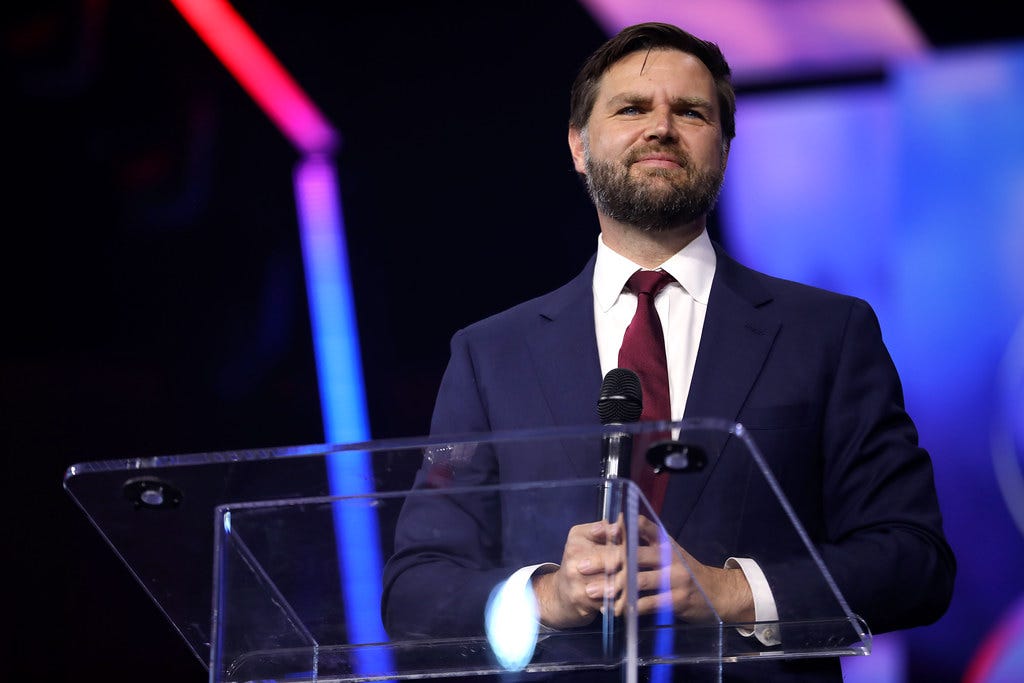
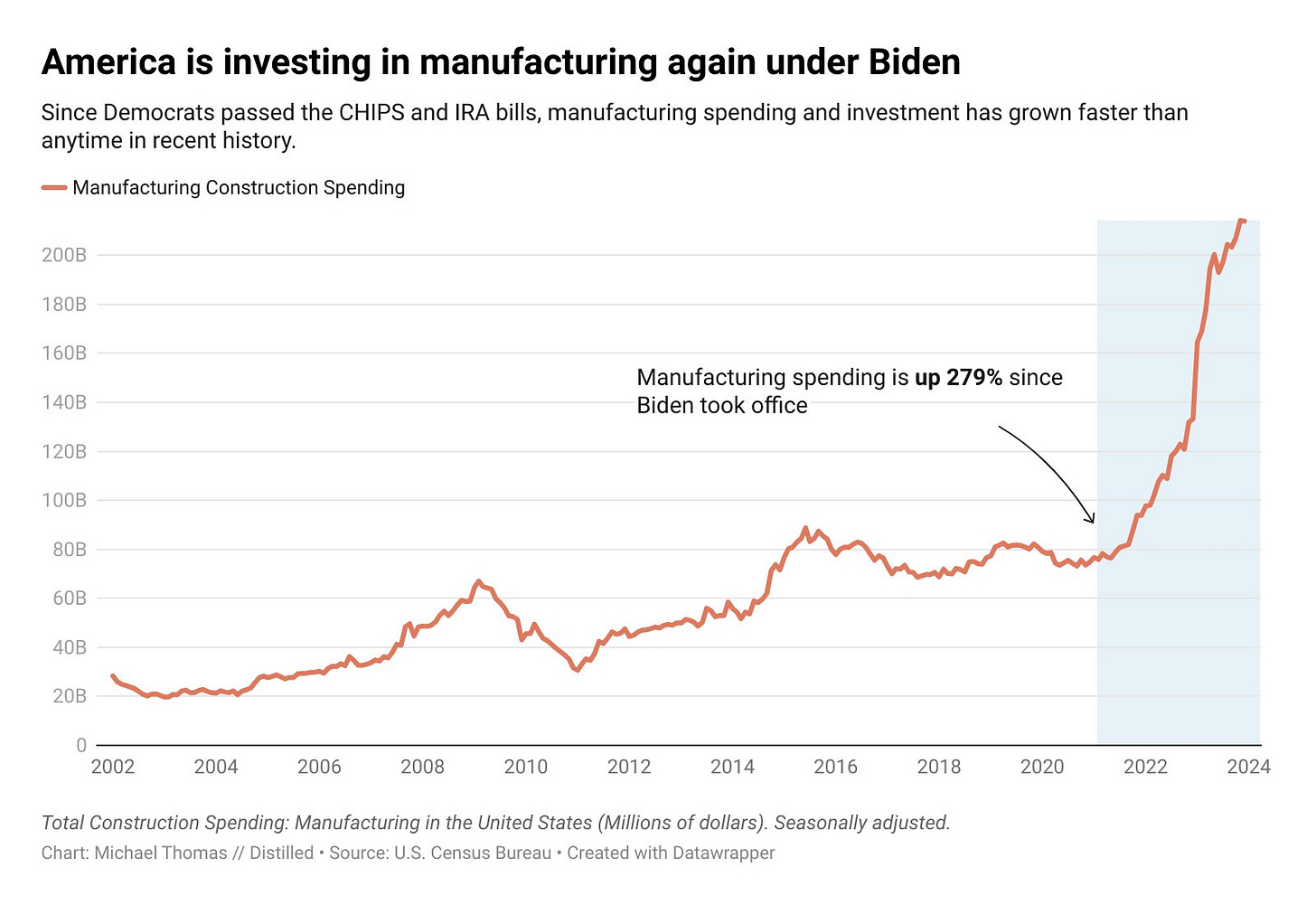


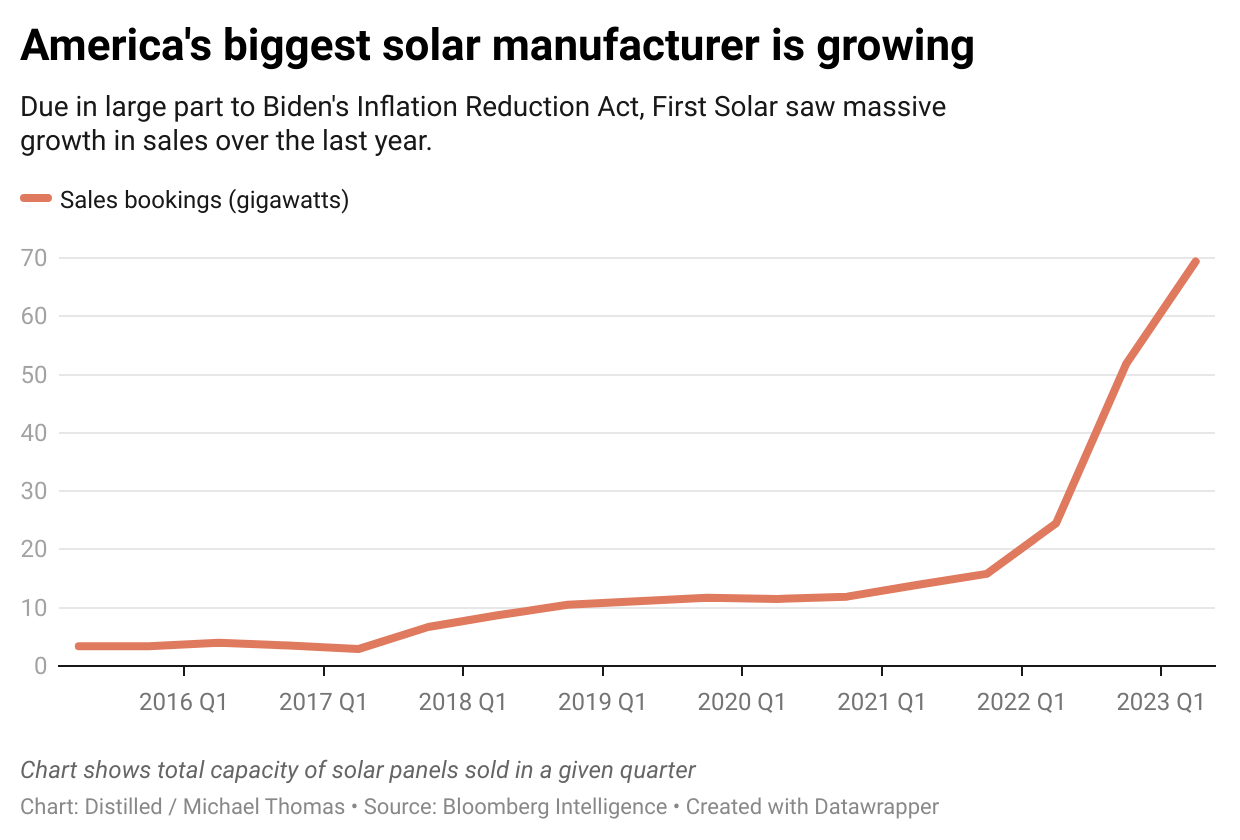


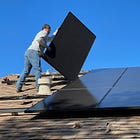
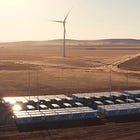
What is your algorithm for clean energy?
Vance claims that Harris pretends that she agrees with Donald J Trump on every issue, and she is running a copycat campaign. Well, the narrative went from Harris has no policy to being a copycat. It's that cat thing again.
https://youtu.be/HZSx_F5lo_c?si=AVeXhWjI5ESPW4KS